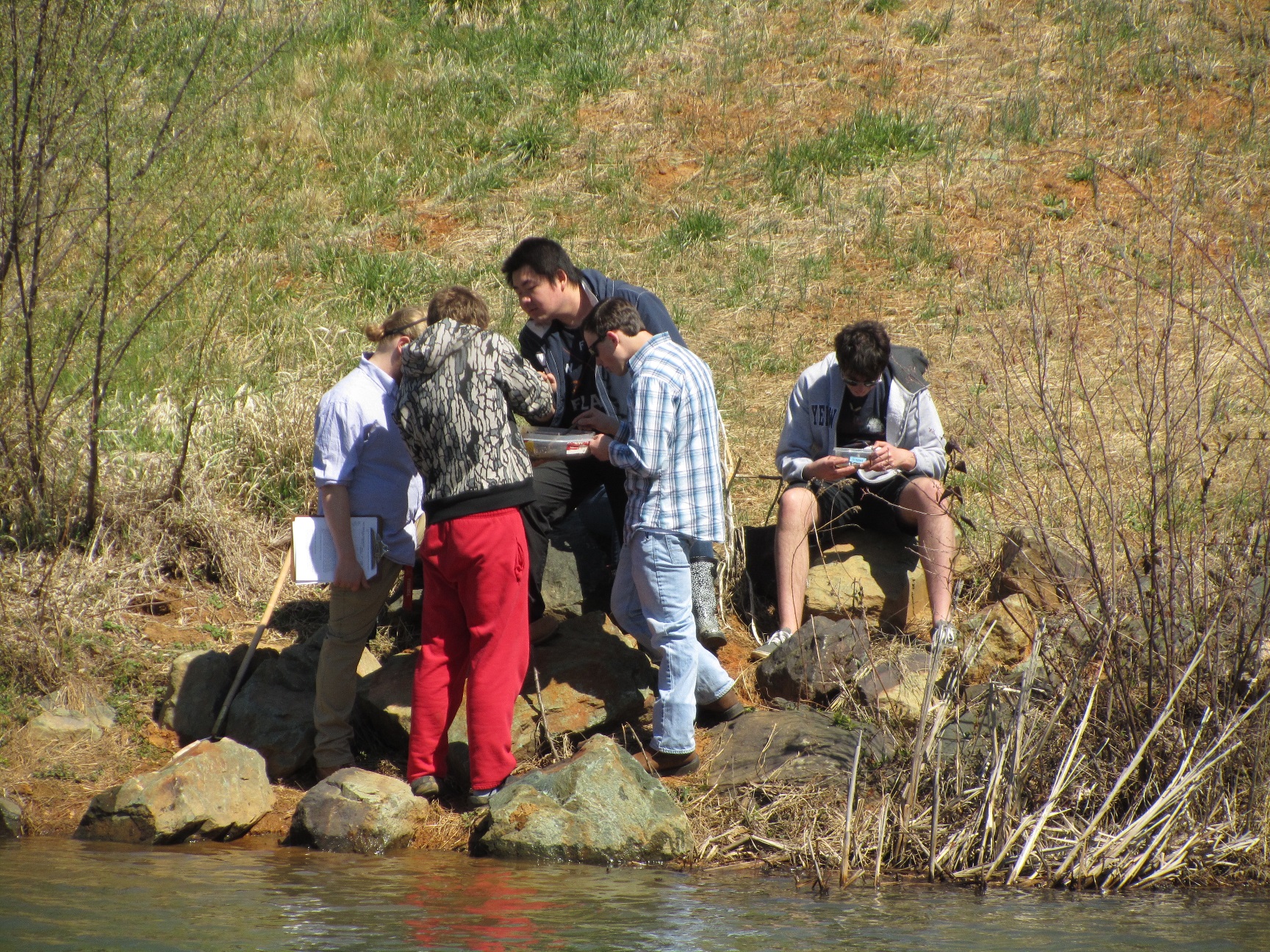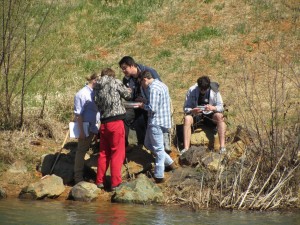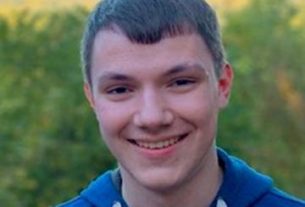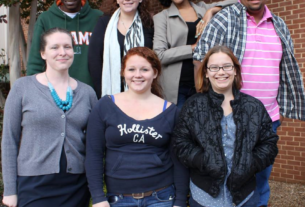
Wake-Up Call in Environmental Biology Class

Photography by Jackie Layton.
Ground and water contamination by chemicals, plastics that do not biodegrade causing death of sea animals and birds, and dwindling water resources were among the troubling conditions recently discussed in PVCC’s Environmental Biology class. Thousands of waterways all over the U.S. have been affected, requiring expensive, large scale clean-up efforts. Some sites are so massive that it will take many years to complete.
When asked what stood out about the class, one student majoring in business said, “It has been a wake-up call. I didn’t know the pollution was this bad.” Other students agreed with him. Some said it was depressing, but said they were glad to be aware of it. Getting a grasp of the facts presented left many feeling powerless to know what they could do about it.
Student Charity Anderson enjoyed being able to go outdoors for some of their labs. She said, “We toured the wastewater plant when there was snow on the ground.” She also said she liked the interesting articles and documentaries that were presented in class. Another student, a psychology major, said she liked the hands on approach of the class. Someone else said she liked playing with bugs.
As part of a recent lab, students tested water from PVCC’s streams and ponds for organisms, pH, temperature, and water flow to determine if water quality had changed from prior testing. They found a number of different organisms (biodiversity), which means that the water has enough oxygen and the right pH to support more organisms than the few species that withstand extreme conditions. In another lab, students buried manmade items in the PVCC garden area to see how well they will break down by the end of the semester.
Though environmental issues might seem out of our control at times, there are companies and individuals who are making a difference. Solar Energy Industries Association says that many U.S. companies are choosing to install solar energy systems. They said, “Walmart, Kohl’s, Costco, Apple, IKEA and more have
embraced solar energy. Collectively, the 25 companies with the most solar capacity in the U.S. now have 1,110 systems totaling 569 megawatts (MW), generating enough electricity to power more than 115,000 homes.”
This means reduced carbon emissions, which reduces greenhouse gases and global warming. Solar energy systems have dropped in price by as much as 80 per cent since 2008, making them much more affordable for homeowners.
Jennifer Scott, professor of Bio 107 — Environmental Biology and general biology courses at PVCC, sees the environmental biology course as an ever-changing curriculum that strives to present relevant, current and local environmental issues.
She said, “Climate change, species extinction and water resource management are underlying topics that will always be covered in the course, however, specific topics such as the Atlantic Coast pipeline change from semester to semester.”
Scott is co-advisor of the Horticulture and Environmental club on campus and serves on the Sustainability committee. She received a B.S. degree in Biology and M.S. degree in Aquatic Ecology from Virginia Tech.





